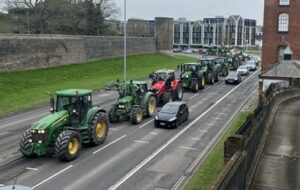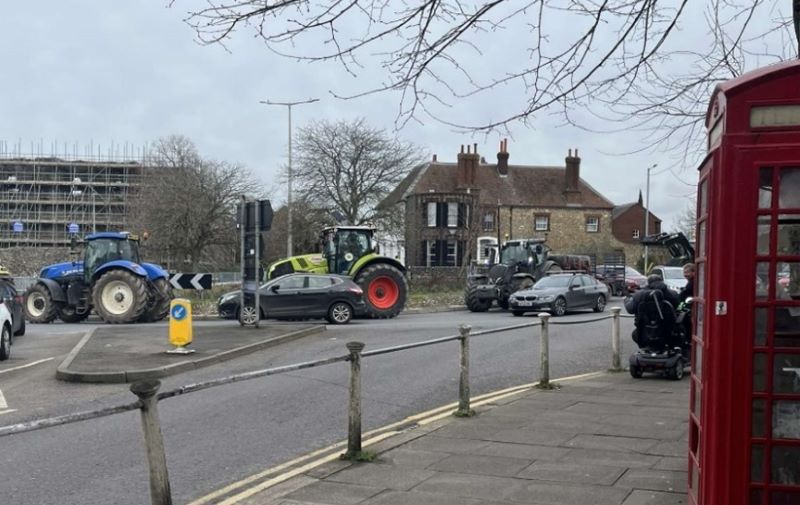European protests come to Canterbury: Why are farmers fuming?
There is continuing unrest amongst farmers and agricultural workers as protests continue across Europe with one of the most recent in the UK happening in Canterbury.
Last Sunday farmers staged a protest in the city, using their tractors to parade through the streets.
But why are farmers protesting?

Europe:
In the last year many protests from farmers and agricultural workers have been seen across Europe.
In Brussels, tractors blocked the streets and eggs were thrown at the European parliament, whilst in Paris tractors were used to block highways.
As prices for necessary resources such as fuel and fertilisers increase, governments are trying to prevent rising food costs.
This leaves farmers in many European countries struggling to keep up with rising prices.
These disputes over income have led to many of the European protests along with farmers feeling threatened by cheaper foreign imports of produce.
The UK:
Although the most recent protest was the parade in Canterbury over foreign imports of food, it is far from the only one.
A major example would be when tractors were used for a blockade in Dover in February in order to block off the port.

In England the key issues raised by farmers are surrounding the low prices that their produce are being bought for by supermarkets.
The idea behind this is that supermarkets are trying to lower the prices of produce in-store for customers, leaving farmers struggling to keep up.
Harry Foulds-Brant, a farmer from Medway has said: “The food prices haven’t gone up, they’re trying to go down, but the cost of everything has gone up, so British farmers aren’t actually making any money because of it.”
In other areas of the UK Welsh farmers and agricultural workers have been protesting throughout February.
These demonstrations are opposing new government legislation, part of which creates stricter rules around the spreading of fertilisers.
What changes are wanted?
Farms hope to see a change in foreign imports of foods, specifically less reliance on cheap imports from other countries like Ukraine.
The Department for Environment, Food and Rural Affairs in the UK (DEFRA) has made a statement: ” This government firmly backs our farmers. We are ensuring British farming is at the heart of British trade by putting agriculture at the forefront of any deals we negotiate, prioritising new export opportunities, protecting UK food standards and removing market access barriers.”
However many farmers and agricultural workers in the UK and across Europe still feel like they are struggling to keep up with the continuously rising prices.
